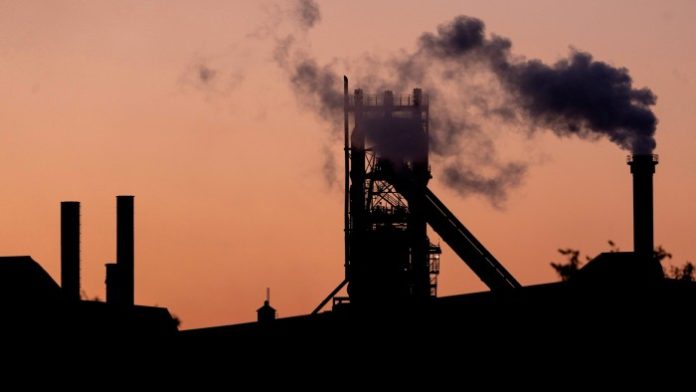Unlock the Editor’s Digest for free
Roula Khalaf, Editor of the FT, selects her favourite stories in this weekly newsletter.
Business secretary Jonathan Reynolds told MPs that nationalisation of British Steel was a “likely option” as his government took the extraordinary step of recalling parliament to prevent the company’s owners from shutting the plant.
Reynolds said the decision to recall parliament for an emergency sitting on Saturday had not been taken lightly, as he defended the government’s negotiations with Jingye, the Chinese owner of British Steel.
The bill, he said, was a “proportionate and necessary” step to preserve primary steelmaking in the UK and protect 3,500 jobs, although he did not want to keep the new power for “longer than necessary”.
MPs in the commons voted in favour of bill on Saturday afternoon after no members opposed it.
Although the bill has wide support from across political parties in the House of Commons, Prime Minister Sir Keir Starmer has come under fire from the Conservatives who said his party had bungled negotiations with Jingye.
“Instead of addressing it earlier in the week when parliament was sitting, their incompetence has led to a last-minute recall of parliament,” Tory leader Kemi Badenoch wrote on X.
The debate marked the second time that the house had been recalled from recess on a Saturday, the only other time related to the Falklands War in 1982.
The 10-page bill will give Reynolds sweeping powers to take control of any steel assets deemed to be at risk of shutting down. Steel companies or managers who fail to comply with the government’s orders could be fined or sent to jail for two years, according to the draft.
The bill will allow the government to instruct steel companies to keep assets running, and to take over those assets if companies fail to comply with those instructions. It also provides for a compensation scheme for costs incurred by a company.
Reynolds admitted the emergency legislation was not a magic wand and that finding a private sector partner remained the government’s preferred option. Nationalisation, however, remained the likely option in the long term, noting that the company’s market value was zero.
Reynolds told MPs during the debate that it had become clear in recent days that the Chinese company’s intention was to cancel and refuse to pay for additional orders for raw materials to ensure continued operation of British Steel’s blast furnaces, the only two remaining in the UK.
The government, he added, had offered to pay for the materials but Jingye instead made a counter-offer for ministers to pay hundreds of millions of pounds without any conditions.
Andrew Griffith, shadow business secretary, accused the government of “nine months of dither and delay” and a “botched nationalisation of steelmaking with the British taxpayer on the hook”.
People close to chancellor Rachel Reeves said that it had taken considerable time and effort to shift the mindset of officials in Whitehall to make them accept drastic government intervention and potential nationalisation of the steelworks.
The emergency debate comes after talks with Jingye to keep the furnaces going foundered. Jingye, which took over British Steel in 2020, has been in talks with the government for more than 18 months over taxpayer support to move to greener forms of steelmaking.
It rejected an offer of £500mn from ministers last month after warning that the operations were no longer “financially viable”. The company said it has been losing more than £700,000 a month due in part to higher tariffs and uncompetitive energy costs.
Tory and Reform UK MPs have seized on this reasoning to argue that the UK government’s transition to net zero is driving the price of energy higher and should be watered down.
Reform has argued for renationalisation of British Steel, in a position that put it at odds with the Conservatives but is aligned with the majority of the British public.
A YouGov poll this week suggested about 60 per cent of the public support renationalisation.
Jingye was not immediately available for comment on Saturday.
Industry minister Sarah Jones said earlier that MPs faced a choice between passing the government’s bill or seeing the end of primary steelmaking in the UK.
She told Sky News: “If blast furnaces are closed in an unplanned way, they can never be reopened, the steel just solidifies in those furnaces and nothing can be done.”
Maintaining Britain’s steelmaking has become a strategic priority for the government, which has put aside £2.5bn to support the sector. Closing British Steel’s two blast furnaces would leave the UK as the only G7 country without the ability to make steel from scratch.
Starmer’s government is developing an industrial strategy to back crucial sectors, and is particularly concerned about the threat to steel from US President Donald Trump’s 25 per cent global tariff on steel and aluminium imports.
Additional reporting by Chan Ho-him in Hong Kong






